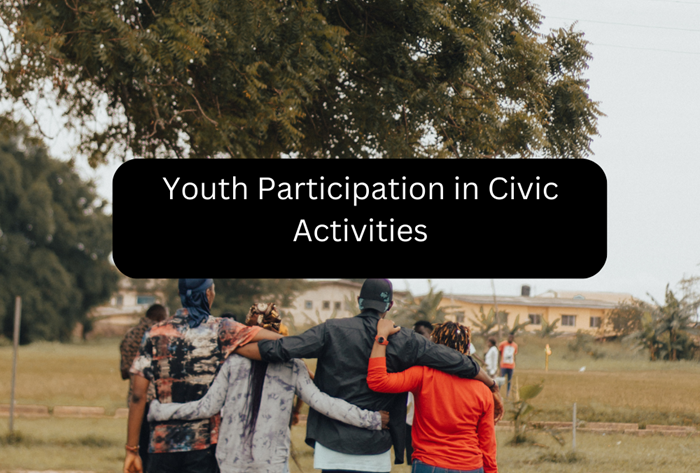Civic activities and projects are meant to bring the entire community together. They’re there to resolve a massive problem, improve the conditions of living for people within the community, and make a positive change.
This much is evident to everyone, but the real problem lies in engaging younger generations in this. For younger generations, there’s a lot of apathy, even outright cynicism, regarding an individual’s ability to make a change in the world. Moreover, everyone’s interested in the federal, international, or even global level of change, with a lot of people completely ignoring local plights.
With that in mind, here’s why, even against those odds, it’s so important to engage the youth in these civic activities.
Fostering civic responsibility
Even the greatest generation, the one that won WW2 and built the modern world from the ground, was once young. Remember, the majority of people who stormed the Normandy were in their early 20s, but the thing that differentiated them from the modern generations was definitely their sense of duty.
Today, younger generations understand global problems far better than they do local issues. There’s so much that can be achieved through global activism, but they often don’t even know about the local projects, yet they’re ready to boycott a company from half a world away.
By getting them engaged in civic activities, what you’re actually doing is fostering their civic responsibilities. What you’re doing is slowly introducing them into the world of adults and preparing them to, at one point, become decision-makers and leaders of the community.
The feeling of civic responsibility is something that you will either instill in them while they’re young or not at all; there’s no middle ground here. It’s also far more effective to do this early on; this way, they’ll accept this as their core values.
Strengthening democracy
The main reason why trust in democracy is weakening so much is because of the false presumption that a single vote doesn’t make a difference. So, you need to find a way to show them that individual activism actually makes a difference.
This difference can be for good or for bad. According to one source, about 60% of book bans in 2021-2022 were the result of the activity of just 11 individuals. That’s the power of democracy, even if it’s not used for the best cause.
While they’re sitting at their homes, other people are pestering their representatives, engaging in activism, attending town hall meetings, and making an effort to introduce the change.
A stronger democracy must start at a local level.
All it takes is for you to convince them to make an effort locally. Once they start seeing the results, they won’t have a way of doubting the effectiveness of their work anymore. This way, you can also show them that they do matter, that they do make a difference. This will also benefit their confidence, not just their perceived personal power.
A stake in the local community
A lot of communities have trouble with vandalism from the local youth; however, what if you could persuade them to get engaged with the local community? Are they going to litter in the park that they helped develop? Probably not!
Moreover, young people feel like they’re disempowered. They believe that all the power lies in the hands of the older generations and that, if they already have all the power, they should be the ones who care about society. If no one asks them for their opinion, why should they even make a contribution?
By convincing them to get engaged in any type of civic activity, you’re actually showing them that their opinion matters. You’re also sending a clear message that this is their community. One day, they’re going to be shot-callers, but this doesn’t mean that you’re waiting for this moment to ask for their opinion. It already matters.
Read: The Complete Guide on IB Biology: SL/HL
It promotes change
Every generation thinks that it’s smarter than the previous one and wiser than the next one, and they’re all equally wrong. There’s no such thing as a smarter or wiser generation; it’s just that the newer generations are more flexible and better adjusted to the new order of things.
By bringing in fresher input from a younger generation (more in tune with the current state of affairs), you’re actually embracing this change instead of opposing it. Working side-by-side with the younger generation means that you’ll ensure a better transition of power and prepare the world for the future.
Keep in mind that there’s always a younger generation. Ensuring that they’re engaged means an efficient transfer of power. A young generation that’s engaged in these projects and brought in by an older generation will have no trouble repeating this process when they become an older generation. It’s that simple.
Teaching them about accountability
Every civic activity has one thing in common – it makes people engaged and responsible for something important. Every demand has pros and cons. It has risks and outcomes. By putting a young person in charge of such a project (even if it’s just a task within a project), chances are that you’re giving them one of their first lessons in accountability.
It’s really easy to criticize when your own actions don’t seem like they have repercussions. However, after you work on a project and understand what it entails, you’ll feel differently about requests.
In a way, civic activity can teach more than just accountability; it can also help you develop empathy for people behind institutions and organizations. This way, they’ll learn an important lesson – that massive projects don’t just happen as a result of someone waving a magic wand. They take a lot of effort.
Learning how to appreciate someone else’s work is what it’s all about. Regardless of the region, this is a universal lesson that every young person has to learn.
Wrap up
Is it hard to get younger generations to engage in civic activities? Yes! Is it worth the effort? Oh, yes! Moreover, it’s not just that it’s hard to get them engaged; it’s that there’s a lack of initiative to get them included. Now that you understand just how crucial this is, the future course of action is more than clear. Youth participation in civic activities needs to become a priority.




